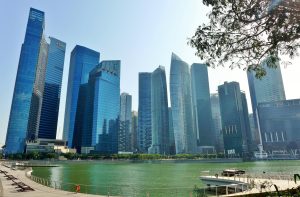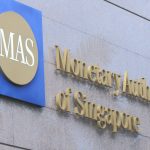It is important for investors to look at specific commercial sector performance and their rebound potential, as some remain more attractive than others
Colliers International said that with fewer investible assets and price mismatch, coupled with the slowdown in office rental growth and the impact of the coronavirus (COVID-19) outbreak, it saw Singapore’s commercial investment sales slump 46.9% QOQ and 35.4% YOY to S$758 million.
Nevertheless, with the upcoming materialisation of the CapitaLand Malls Trust (CMT) – CapitaLand Commercial Trust (CCT) merger in Q2, 2020 real estate activities should still match 2019’s level.
 Understanding the now in the Commercial Sector to prepare for the next
Understanding the now in the Commercial Sector to prepare for the next
Mr Jerome Wright, Colliers International’s Senior Director for Singapore said, “As investors are still trying to understand the economic and financial impacts of the crisis, it is safe to say that it will take a year or so for Singapore investment activity to return to normal. Despite a forecasted 24% drop YOY, our research still projects that Singapore real estate investment sales volume could grow on average by 5% per annum over 2019-2024.”
He added, “Singapore’s strong policy response to COVID-19 has instilled confidence in travelers and investors alike, reinforcing its safe haven status. The previous 29% increase in investment sales over 2003, despite the SARS outbreak in H1, illustrates the rebound potential from COVID-19 in H2 2020. There will then be real estate opportunities, as businesses affected by COVID-19 will have to reassess their options.”
Colliers International’s earlier research titled, “Opportunities in a Changed Environment | Investment Sales Q1 2020”, said, “In the longer term, Singapore remains an attractive and top investment destination with an average growth of 5% per annum in 2019-2024. Colliers recommends investors to review portfolios and focus on opportunities that have emerged for properties with long term growth.”
“Overall real estate investment sales declined 36.9% quarter-on-quarter (QOQ) in Q1 2020 and 15.8% year-on-year (YOY) to S$3.9 billion (US$2.8 billion) as the coronavirus (COVID-19) pandemic and recession risks dampened investors confidence.
In the absence of big-ticket deals in Q1, investment volume eased across all sectors aside from Residential, which took the lead, boosted by strong public land sales. Developers are still active, albeit cautious, and Colliers Research expects the market sentiment to recover in the longer run. The commercial sector remains the most attractive for investors, with office and retail activities in 2020 expected to match 2019’s levels mainly on the merger between CapitaLand Mall Trust (CMT) and CapitaLand Commercial Trust (CCT) in Q2, which involves S$9.5 billion (US$6.6 billion) of commercial assets.
Despite a forecasted 24% drop YOY, Colliers Research projects that Singapore real estate investment sales volume could grow on average by 5% per annum over 2019-2024, reinforcing Singapore’s status as an investment safe haven.
Download Colliers’ quarterly report on the real estate investment sales market in Singapore for Q1 2020 as we examine the latest shifting trends, with expert recommendations and outlook for real estate investors.”
Mr Wright said, “The longer-term fundamentals of the Singapore real estate market remain strong and intact, and we can expect the market to recover as the successful control measures are lifted and industries re-gain full momentum.”
It is important for investors to look at specific commercial sector performance and their rebound potential, as some remain more attractive than others.
He added, “As Singapore will continue to attract talent and occupiers given its safe environment and appeal to both employers and staff, the commercial sector is the front runner as short-term disruption could give way to long-term opportunities.”
Colliers International said that in the longer-term fundamentals of the Singapore real estate market remain strong and intact, and we can expect the market to recover as the successful control measures are lifted and industries re-gain full momentum.
“The commercial sector is the front runner, as short-term disruption could give way to long-term opportunities.”
In the meantime, Colliers encourages investors to reassess investment strategies based on the resilience and rebound of interested sectors. It recommends investors to review their portfolios and focus on opportunities that have emerged for properties with long term growth, such as prime commercial, city fringe business space and hotels.
Colliers International’s report “COVID-19: Impact on APAC Real Estate Capital Markets”, said it is time to look beyond the downturn.
“The outbreak of COVID-19 will sharply lower 2020 GDP growth in China and Hong Kong SAR, and adversely affect the rest of Asia, but less so Australia. The Asian retail sector has been notably hard hit. We assume the outbreak peaks in H1, though the spread of the virus beyond Asia raises the possibility of longer-term disruption. Investment property sales may weaken across Asia in H1, although a recent big investment in Shanghai shows some key real estate players are already looking beyond the likely downturn.”
Colliers earlier said, “The extent of influence of the coronavirus pandemic (COVID-19) on property cap rates will depend on the asset class. Nonetheless, it will be temporary.”
“Properties of a consumption nature, such as hotels and retail properties, are currently the most affected as their values are likely to decline, resulting in rising cap rates. Cap rates will likely be volatile in the short term. Office properties, on the other hand, are affected to a lesser extent, and logistics and industrial properties will be the least affected due to their economic nature.
Reporting valuations will certainly drop in H1 2020, reflecting tough business conditions and lower overall revenue in most properties – especially hotel and retail developments.
However, given the strong fundamentals of the Singapore economy in normal times, we do not expect many properties to sale below their fair market value.”







